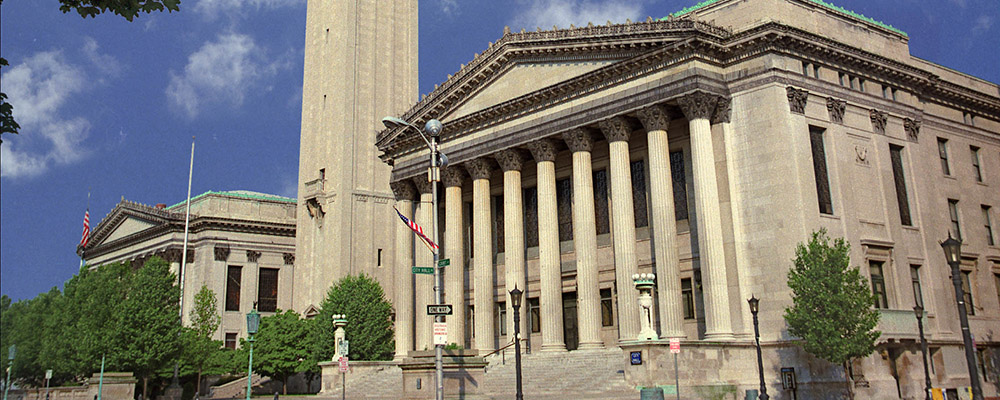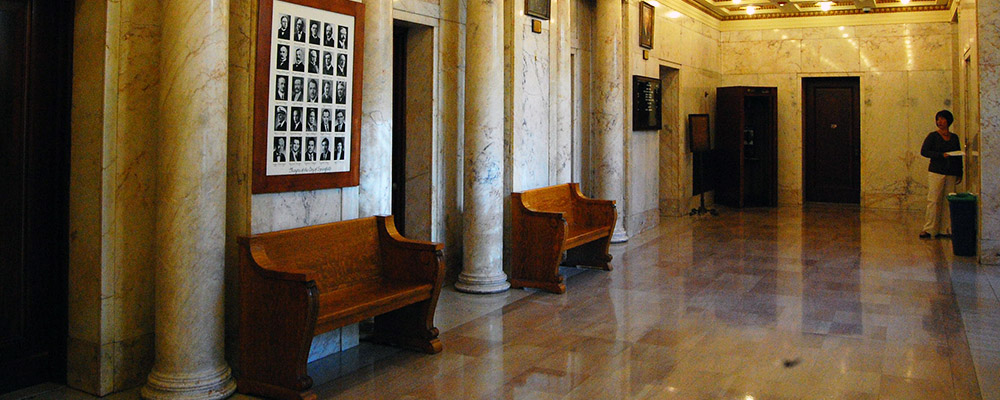Office of Administration & Finance
Welcome to the City of Springfield Office of Administration & Finance Page!
Formed in 2013 as a consolidation of the CAFO and Finance Departments, the goal of the Office of Administration & Finance is to ensure the fiscal health and sustainability of the city. To that end, the department closely tracks, and advises on, the City’s revenue, expenses, and grants across all funds. A&F provides the Mayor, City Council, and other City departments with timely and accurate information, advice, and performance management.
Since its inception, the department has supported City departments by providing valuable analysis on financial and administrative matters. A&F will continue to evaluate process changes and improve the City’s finances and operations by providing quality services in the most efficient and effective manner possible.
Adopted Budgets
The Adopted Budget presents projected City expenses and revenues for the fiscal year, and serves as a guide to help administrators, elected officials, the general public, and other parties understand the City’s programs, services, goals, and finances. Approved by City Council before each fiscal year, it is a public record on how the City plans to provide services and programs, fulfill short term and long-term obligations, and maintain fiscal and operational excellency.
Capital Improvement Plan
The Capital Improvement Plan is the result of a comprehensive process that builds upon priorities established by the current Administration. It provides a detailed look at the City’s spending on major construction and equipment projects over the next five years.
Through the strategic use of federal, state, municipal, and private funds, the City has made great strides in completing priority infrastructure projects. The City is committed to funding projects that will improve the vital areas of public safety, education, economic vitality, local neighborhoods, and fiscal and operational excellence. As the roadmap for future capital spending, the Capital Improvement Plan is the groundwork for these improvements.
FY26-30 Capital Improvement Plan
FY25-29 Capital Improvement Plan
FY24-28 Capital Improvement Plan
FY23-27 Capital Improvement Plan
FY22-26 Capital Improvement Plan
FY21-25 Capital Improvement Plan
FY20-24 Capital Improvement Plan
FY19-23 Capital Improvement Plan
FY18-22 Capital Improvement Plan
FY17-21 Capital Improvement Plan
FY16-20 Capital Improvement Plan
FY15-19 Capital Improvement Plan
FY14-18 Capital Improvement Plan
Multi-Year Financial Plan
Developing the annual budget for the City of Springfield is the City's most important task as it sets priorities, addresses the needs of our residents and businesses, and allocates limited resources to provide services in the most efficient way possible. As we plan ahead for the coming budget cycle, it is important to understand how the decisions we make today will effect tomorrow. This plan is meant to provide an honest outlook of the City's finances and the struggles we are facing. It also is meant to share the ideas being considered to help us achieve our guiding principles within the limited resources available.
FY26-29 Multi-Year Financial Plan
FY25-28 Multi-Year Financial Plan
FY24-27 Multi-Year Financial Plan
FY23-26 Multi-Year Financial Plan
FY22-25 Multi-Year Financial Plan
FY21-24 Multi-Year Financial Plan
FY20-23 Multi-Year Financial Plan
FY19-22 Multi-Year Financial Plan
FY18-21 Multi-Year Financial Plan
FY17-20 Multi-Year Financial Plan
FY16-19 Multi-Year Financial Plan
FY15-18 Multi-Year Financial Plan
FY14-17 Multi-Year Financial Plan
Debt Affordability Study
Mandated by Chapter 468 of Acts and Resolves of 2008, the City of Springfield's Office of Management & Budget is required to provide a yearly review of the City's current outstanding debt. This review is designed to have two desired effects:
1. An outstanding debt analysis will show financial officials and citizens the current state of debt management.
2. Secondly, this analysis will show if the City of Springfield could afford more debt in either the current fiscal year or future years as debt service payments decline.
This study will show the City is currently within its debt capacity as mandated by the City's financial ordinances Chapter 4.44.070
Completed SWAT Analyses
Tax/Title Property Management SWAT Project
Recently, the City submitted Requests for Proposal for the management of its residential and commercial Tax Title properties. This decision was based on the increasing costs of property management for City owned properties.
Grant Reimbursement and Reporting SWAT Project
Following an interdepartmental meeting in September 2013, an issue arose regarding the processes departments must follow for grant reimbursement and reporting. A number of efficiencies and general process improvements were identified and implemented. These efficiencies will make the reimbursement process easier and inevitably the City will collect grant funds faster.
After the February 2013 City Ordinance change, an implementation team with representatives from Code Enforcement, the Office of Housing, the Office of Management & Budget, ITD, and Collector/Treasurers was assembled to compile data on unpaid code enforcement tickets. Letters were sent to property owners with outstanding code violations, and because of this effort, to date, $95,860.26 has been paid to the City.
A multi-departmental task force was created to review and reconcile the City’s health insurance budget. As a result, the City was able to reduce the preliminary request for city-wide health insurance by $2.46 million. This is the second consecutive year where the City was able to reduce the overall appropriation for city-wide health insurance.
Ongoing SWAT Projects
Bill on Real Estate Taxes SWAT Project
The City has updated its procedure for collecting past due bills. Code Enforcement violations, Clean and Liens and Demolitions costs that are unpaid for more than one year will now be added to the property’s real estate tax bill. This allows the City a more concrete means of collecting bills that were created in an effort to help clean up the city and make it a safer place to live. A multi-departmental task force was created to implement and manage the new collection process.
Summary Billing SWAT Project
Currently all departments pay their own bills for natural gas usage, a team from the Comptrollers, Facilities and OMB departments was assembled to work on creating a summary bill for all the City’s gas accounts. . The Comptroller’s Office will now receive one (1) summary bill instead of 101 different bills sent to various departments/locations throughout the City. This change will lead to greater efficiency in bill payment and more oversight into the City’s utility usage. Facilities will continue to monitor cost and usage, but their review will not delay the bill payment procedure.
Foreclosure Ordinance SWAT Project
The City Council amended the City’s ordinance related to vacant and foreclosed properties. A multi-departmental task force was created to implement and manage the new ordinance.
Assessors Database SWAT Project
A SWAT team is working with the Assessors department’s data to strategically identify ways to help increase the levy ceiling.
Paperless Hiring SWAT Project
A multi-departmental task force was created to review the hiring process. A value stream map was created and revealed a convoluted process with numerous redundant steps. Currently many different options are being explored to streamline the hiring process.
Contract Module SWAT Project
The Comptroller’s Departments has identified reoccurring issues in the Contract Module of MUNIS causing the year end close of the City’s accounts extremely difficult. Preliminary findings and recommendations will be presented to MUNIS to ensure a more streamlined process this fiscal year.





